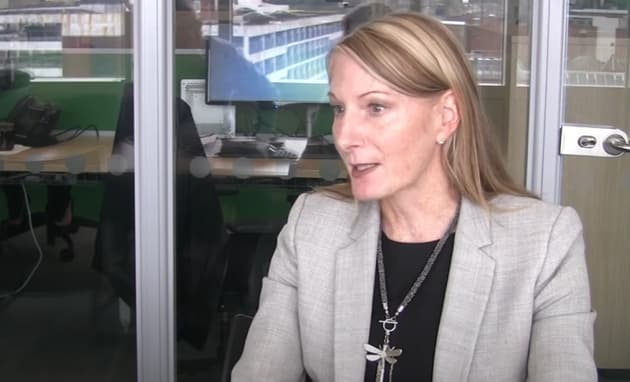
‘Dereliction of leadership’: Thurrock council ignored warnings and hid catastrophic losses
A bankrupt council in Essex failed to grasp the risks of a disastrous billion-pound investment strategy, ignored repeated warnings and then tried to hide the fact that it had lost millions of pounds of taxpayers’ money.
These are among the shocking failings that led to the financial collapse of Thurrock council, according to the findings of a government-commissioned inspection published this week.
While the full scale of the public money lost remains unknown – the council faces having to write off at least £275m of investments – the report makes clear that a “significant and rapid reduction in the scope of local services” is needed if the council is to recover from one of the largest scandals in local government history.
“Many services, which have been relatively well funded over the past decade may, as a consequence, be equipped to do little more than the statutory minimum for the foreseeable future,” said the inspection report produced by commissioners from Essex county council.
The Bureau's extensive three-year investigation into the Thurrock saga appears vindicated by this week's report, which apportions much of the responsibility to two former senior staff members: Sean Clark, who was chief financial officer, and Lyn Carpenter, the former chief executive.
The findings detail how Clark was given “extraordinary” delegated powers, which he used to borrow £1bn from other local authorities to invest in risky business ventures, mainly in the renewable energy sector.
 Clark resigned earlier this year ahead of the completion of a disciplinary process into his conduct
Clark resigned earlier this year ahead of the completion of a disciplinary process into his conduct
Clark was “central to the conception, development and ultimate failure of the council’s investment strategy”.
“He sponsored a strategy that neither he, nor the finance teams he led, had the skills and experience to safely deliver and failed to secure appropriate investment advice,” the report said.
Clark resigned earlier this year before a disciplinary process into his conduct was completed. The inspectors concluded he was not entirely to blame for the council’s failings. “Put simply, [Clark] could not have acted as he did in a well-functioning, well-led local authority,” said the report.
That the council was poorly run was in large part due to Carpenter, inspectors said. Senior staff described her leadership style as “autocratic”. They were reluctant to be open and honest with her “for fear of being blamed or publicly shamed”. If something went wrong people worried things would “hit the fan” and Carpenter would frequently ask: “Who do we sack for this?”
Carpenter’s behaviour and leadership style was a “major contributor” to the failure of senior staff and councillors to understand and oversee key initiatives like the investment strategy, the report said.
The document sets out the “extraordinary chain of events” that ultimately led to the council declaring effective bankruptcy last Christmas with a £500m hole in its budget – the largest ever reported by a UK local authority.
The unprecedented deficit includes an estimated £275m lost as a result of four ruinous business deals, with the most damaging being its dealings with Liam Kavanagh. The businessman’s company, Toucan Energy Holdings 1, owes Thurrock £655m and tens of millions of pounds in interest payments. The company has since gone into administration and buyers are being sought for more than 50 solar farms bought largely with the council’s money. Thurrock estimates the total loss relating to the deals will be almost £200m.
A further £94m was provided to lender Just Loans Group. That company went bust in June last year with the council as its main creditor. The loss to the taxpayer is expected to be £65m.
Thurrock, the inspectors said, pursued an investment strategy “unique within local government”. It began in May 2016 when the council invested £24m in a bond issued by one of Kavanagh’s companies to finance the purchase of a solar farm in Swindon. Over the next 18 months Clark made further deals with tens of millions of pounds of public money.
A “step change” occurred in October 2017 when councillors agreed to extend his power to make further deals, such as increasing the cash limit that could be placed with a single external business partner from £75m to £425m (this would rise to £750m by 2019/20).
 Senior staff described Carpenter’s leadership style as ‘autocratic’
Senior staff described Carpenter’s leadership style as ‘autocratic’
The extra power enabled Clark to rapidly expand the council’s investment portfolio, including £268m in a further 32 solar farms Kavanagh had bought in December 2017. The inspectors said that deal appeared to have been supported by a spending review panel made up of senior councillors, to which Clark was required to provide details of investments over £10m.
However, as the council’s investments increased to £1bn over the following years, only one further deal was discussed with the spending review panel, a fact inspectors described as “astonishing”. That means Clark did not inform group leaders of any of the £130m top-ups to Kavanagh’s businesses, money which is currently unaccounted for. Kavanagh denies wrongdoing.
The Conservative-led cabinet, the decision-making body of the council, was also criticised, although the report said Clark had withheld key information from senior figures, including former council leader Rob Gledhill and ex-finance cabinet member Shane Hebb.
Current and former cabinet members told the inspectors they now recognise there was a “fundamental lack of curiosity, tenacity and follow-through in the scrutiny of council investments”.
Internal checks and balances were either “weak or wholly absent,” the report said. The investments were rarely discussed among senior officers, never looked at by Thurrock’s internal scrutiny processes and not evaluated properly by external auditors.
“This meant that, although [Clark] actions were wholly inconsistent with the principles approved by council, these actions went unchallenged by members, the chief executive and senior officers for several years,” said the report.
Many of the report’s findings had already been revealed during a three-year investigation by the Bureau of Investigative Journalism.
The report said TBIJ’s articles “provided a further opportunity to pause and reflect”. Instead, members and officers “doubled down and defended the council’s position”. At a public meeting called to discuss the reporting in June 2020, “members largely ignored the information and concerns raised, and instead congratulated the council and its officers on the success of the programme”.
When serious issues started to arise with multiple investments, Clark, the council’s monitoring officer, and external advisors Camdor, “largely kept these matters to themselves”. That meant Carpenter, Gledhill and others were “not informed about the seriousness of the situation” until months later.
Inspectors concluded that although “serious mistakes” were made by individuals, the council’s problems stemmed from collective failure over many years.
“Over the last five years Thurrock council has repeatedly failed to identify, understand and properly manage the risks it has taken,” the report said.
“It has failed to put in place appropriate structures and processes to ensure accountability and oversight. It has failed to identify and has, in many cases, actively dismissed clear warning signals.
“When its investments have incurred losses, members and officers have sought to hide these losses, removing the opportunity to take stock and learn from previous mistakes.”
The commissioners made recommendations as to how to improve processes at the council and recover its financial position, a task they admitted may not be possible. Among them is the move to hold a single election every four years to provide greater political stability.
They said there should also be wider learnings for local government as a whole; a particularly timely recommendation given the collapse of Slough, Croydon and, most recently, Woking councils in similar circumstances.
Jen Craft, Labour’s prospective parliamentary candidate for Thurrock, described the report as a “difficult and infuriating read”.
“The impact of this ‘pattern of failure’ and ‘dereliction of leadership’ will hit our community hard and will be felt for years to come,” she said.
John Kent, leader of the council’s Labour group, backed calls for a wider public inquiry. He said cabinet members responsible for the “catastrophe” should “show some moral fibre” and resign.
Andrew Jefferies, a Conservative and newly elected council leader, said: “Whilst I am deeply sorry for the shocking and unacceptable failings of the past, I can pledge that under my new leadership the council will never repeat these mistakes.”
Dave Smith, the council’s chief executive and managing director commissioner, described the report as a “turning point”.
He said: “The serious and significant failings that took place here cannot be understated. We will not shy away from the hard truths about the way the council was operating and the changes that need to be made.”
Reporter: Gareth Davies
Editor: Meirion Jones
Production Editor: Emily Goddard and Alex Hess
Fact checker: Grace Murray
Our reporting on local power is part of our Bureau Local project, which has many funders. None of our funders have any influence over our editorial decisions or output
-
Area:
-
Subject:




